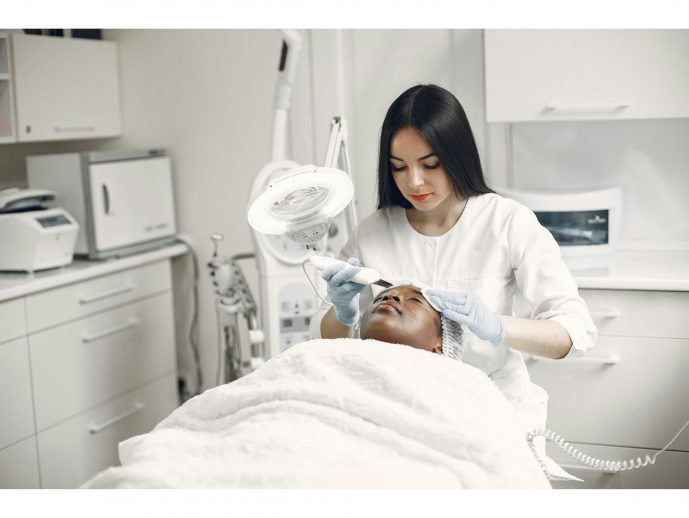Categories more
- Adventures (17)
- Arts / Collectables (15)
- Automotive (37)
- Aviation (11)
- Bath, Body, & Health (77)
- Children (6)
- Cigars / Spirits (32)
- Cuisine (16)
- Design/Architecture (22)
- Electronics (13)
- Entertainment (4)
- Event Planning (5)
- Fashion (46)
- Finance (9)
- Gifts / Misc (6)
- Home Decor (45)
- Jewelry (41)
- Pets (3)
- Philanthropy (1)
- Real Estate (16)
- Services (23)
- Sports / Golf (14)
- Vacation / Travel (60)
- Watches / Pens (15)
- Wines / Vines (24)
- Yachting / Boating (17)
Do You Need a Level 7 Qualification To Offer Advanced Aesthetic Treatments?
Published
06/16/2025The aesthetics industry is growing fast—but regulation is not keeping pace. That mismatch has created an unusual environment: high demand for advanced procedures like dermal fillers and anti-wrinkle injections, with minimal legal restriction on who can actually perform them. It’s a grey area that leaves both practitioners and clients vulnerable. And it’s raised one persistent question for anyone working in or entering the field: do you need a Level 7 qualification to offer advanced aesthetic treatments?
Technically, no. In the UK, there is currently no legal requirement to hold a Level 7 qualification in order to administer injectables. But that doesn’t mean it doesn’t matter.
What a Level 7 Qualification Actually Means
In simple terms, Level 7 sits at postgraduate level. It’s designed for practitioners who are already qualified—often medics or experienced beauty professionals—and want to expand their scope of practice into advanced aesthetics safely and responsibly. These courses typically cover in-depth facial anatomy, complication management, ethics, advanced injection techniques and real-world clinical scenarios.
For many in the industry, pursuing professional growth through specialised training like a Level 7 upgrade isn’t just about ticking a box. It’s a way to move with where the industry is heading, rather than where it currently sits. Insurance providers are starting to take notice. So are clients. And if government regulation ever catches up (as many expect it to), practitioners with robust, accredited qualifications will already be ahead of the curve.
Is It Mandatory? No. Is It Smart? Yes.
Here’s the honest answer: you can technically practise without it. Many do. Some have strong skills developed through short courses and on-the-job experience. But those routes carry risk—especially when something goes wrong. A Level 7 framework gives practitioners the kind of clinical context and critical thinking that fast-track workshops often leave out. It also provides confidence—not just in terms of injecting, but in managing complications, setting boundaries, and working within your scope.
There’s also the issue of public trust. As aesthetic treatments become more mainstream, so do the conversations around regulation, safety and transparency. Clients are more aware than ever of what can go wrong. Having a Level 7 certificate on your wall doesn’t just reassure them. It signals that you take your practice seriously enough to go beyond the minimum.
Who Is It Best Suited To?
Level 7 training isn’t for complete beginners. Most providers require some experience in aesthetics or a medical background. That said, many beauty professionals who have already completed Level 3 or 4 qualifications—and gained hands-on experience in skin treatments—are choosing to bridge that gap with access routes or upgrade packages. It’s a way of formalising what they already know, while deepening their technical and theoretical understanding.
If you’re a nurse, doctor or dentist already working in aesthetics, it can also be a strategic move. As regulations tighten (which feels increasingly inevitable), having a recognised postgraduate-level qualification might be what keeps you compliant and competitive.
The Long Game: Building a Sustainable Career
The aesthetics boom isn’t slowing down, but it’s also maturing. Clients are asking more questions. Regulatory bodies are watching more closely. And fly-by-night practitioners are starting to feel the squeeze.
Investing in a Level 7 qualification is not about gatekeeping or elitism. It’s about protecting your practice and building a career that can last longer than the latest TikTok trend. Treatments like tear trough filler, non-surgical rhinoplasty and full facial rejuvenation require more than technical skill—they demand judgement, caution and context.
In the long run, the professionals who succeed will be those who balance artistry with accountability. A Level 7 helps develop exactly that.
Final Thoughts
You don’t need a Level 7 to get started in aesthetics. But if you want to build something lasting—to be taken seriously, to stay insurable, to weather future regulation—it’s one of the smartest investments you can make.
Advanced treatments demand advanced responsibility. And while the industry may still be figuring out its standards, there’s no harm in setting your own. Especially when the alternative is hoping no one asks you the tough questions.















